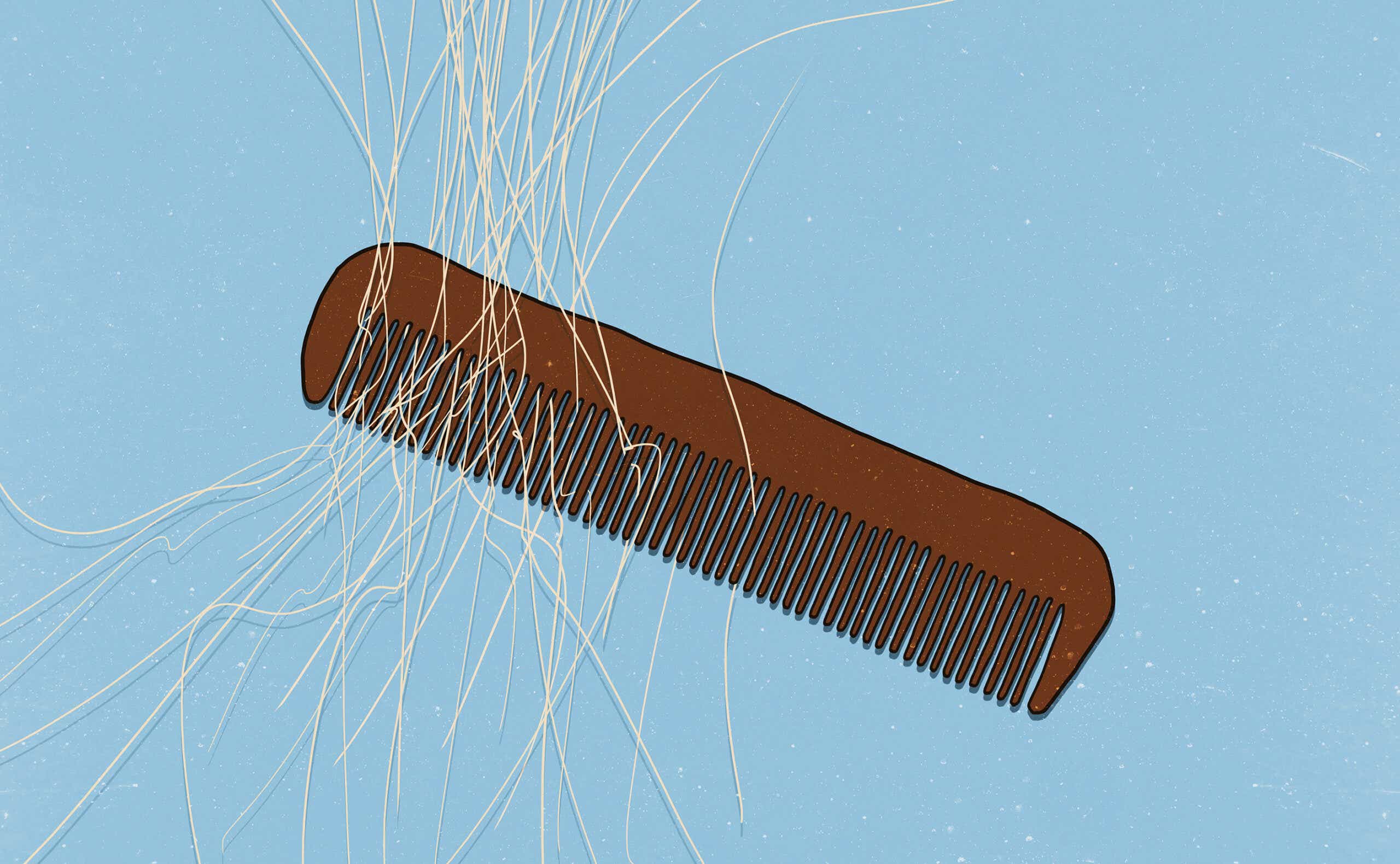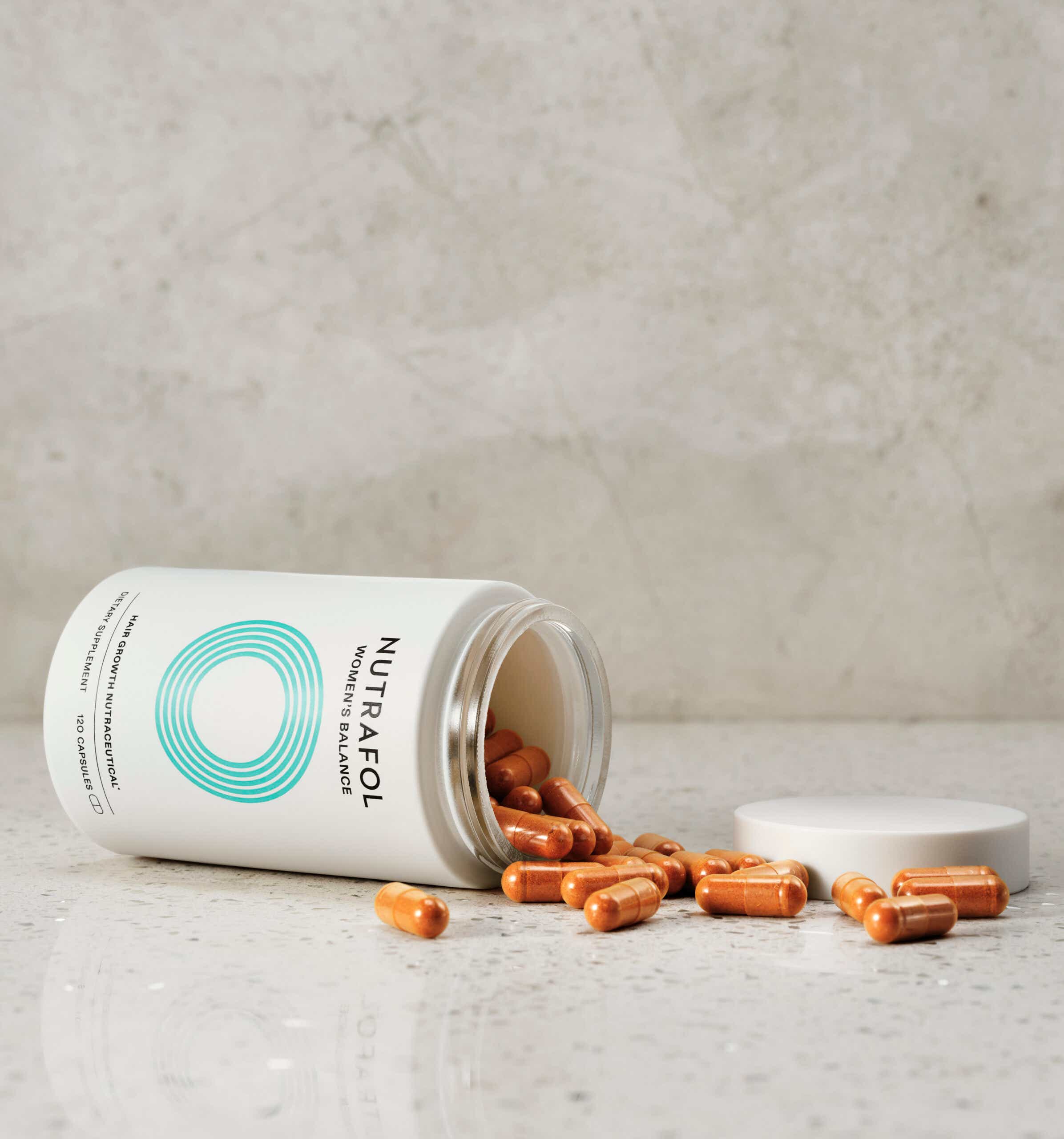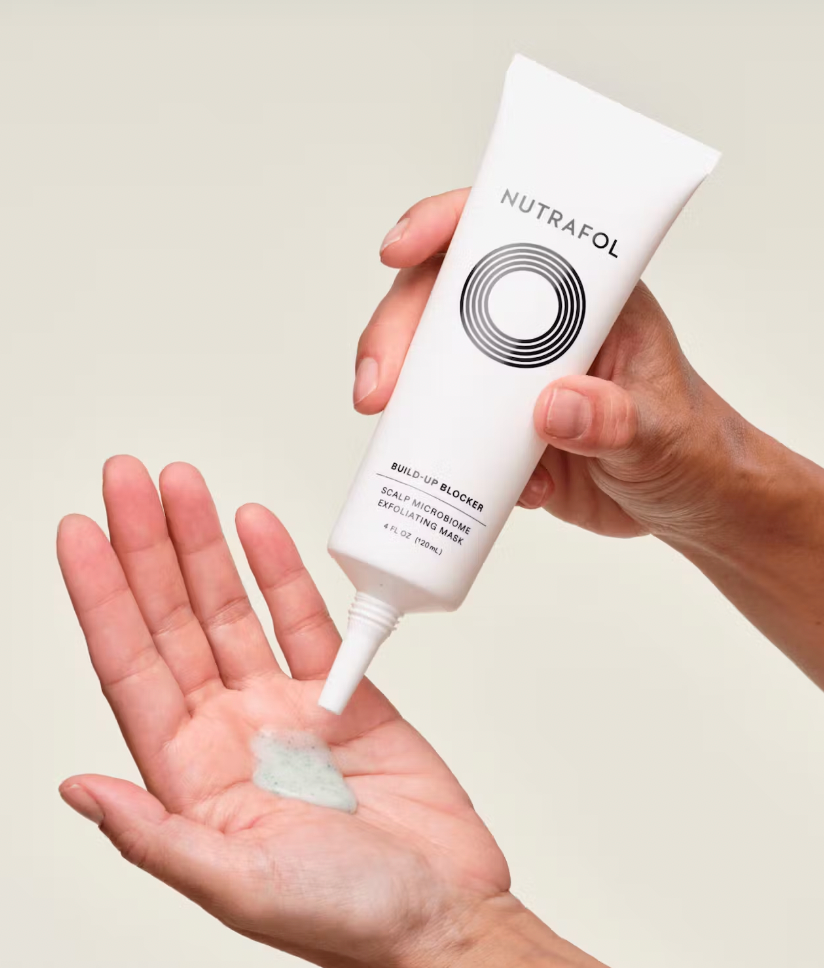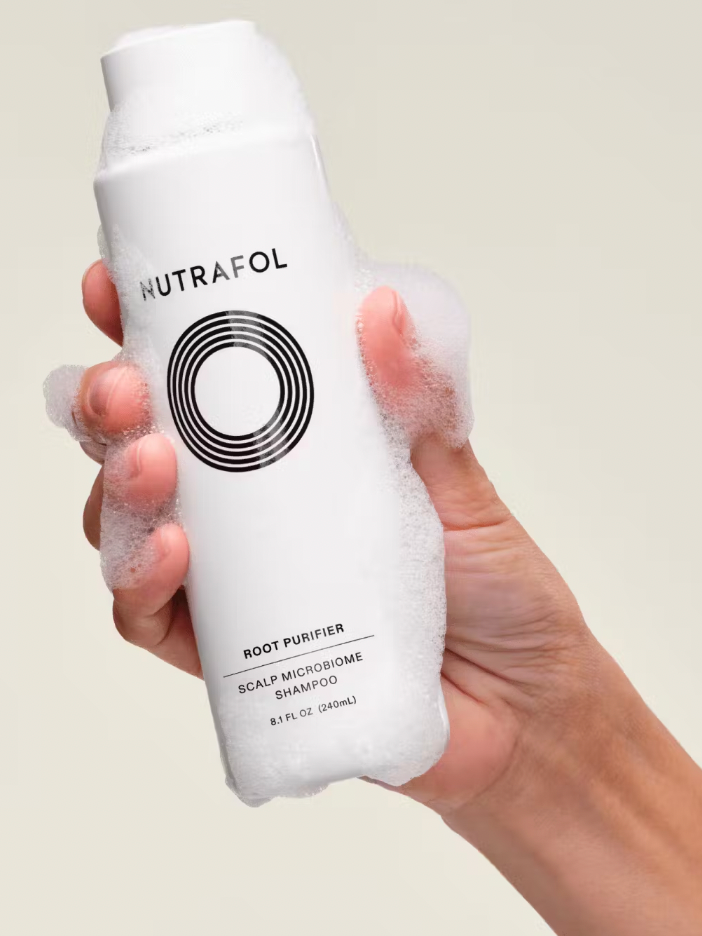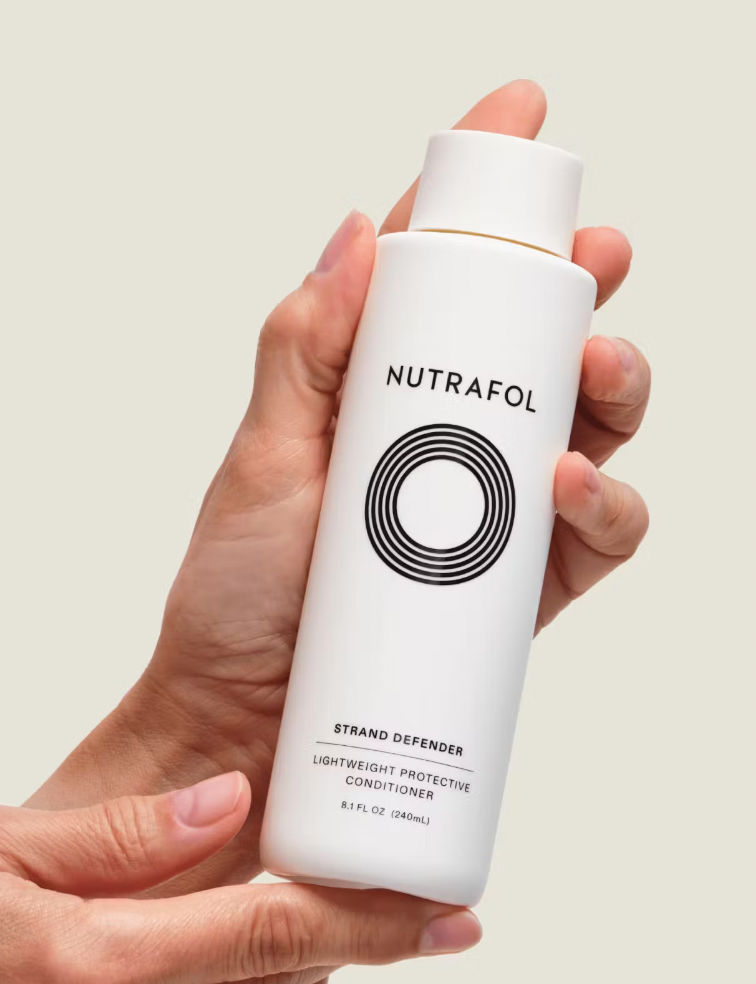Many of us are familiar with the ups and downs of menopause: On one hand, you’ve reached an exciting milestone and have the confidence and self-possession that comes with decades of adulthood, but on the other, there are a lot of physical and emotional changes that can feel overwhelming.
Fortunately, the often-toxic conversation around menopause — and aging in general — is starting to change, albeit slowly. Women have been empowered to speak about their experiences more openly, and more and more resources have become available to women entering menopause, from social networks to products that help with some of the bothersome symptoms.
Though menopause has common features among those who experience it, it’s a complex biological process that’s unique to each person, according to Brianna Diorio, Ph.D., director of product education at Nutrafol. “It’s not a problem to solve, but a journey to be experienced,” Dr. Diorio tells us. “You’re not alone in this.”
One of the common physical effects of menopause is hair thinning, which can take a real emotional toll on women who experience it: Hair is part of our identity, and losing it can feel out of our control. There are, however, steps we can take to alleviate it.
We spoke to Dr. Diorio about the underlying causes of menopausal hair shedding, how Nutrafol’s formula for women ages 45 and up addresses those factors, and what else women can do about hair thinning.
Why does our hair shed during menopause?
According to Dr. Diorio, a lot factors into menopausal hair shedding. Aging itself introduces hormonal, dietary, lifestyle, and environmental changes that can cause hair shedding. “All these variables can affect hair quality and result in less hair growth activity, hair thinning, and hair density decline,” Dr. Diorio says.
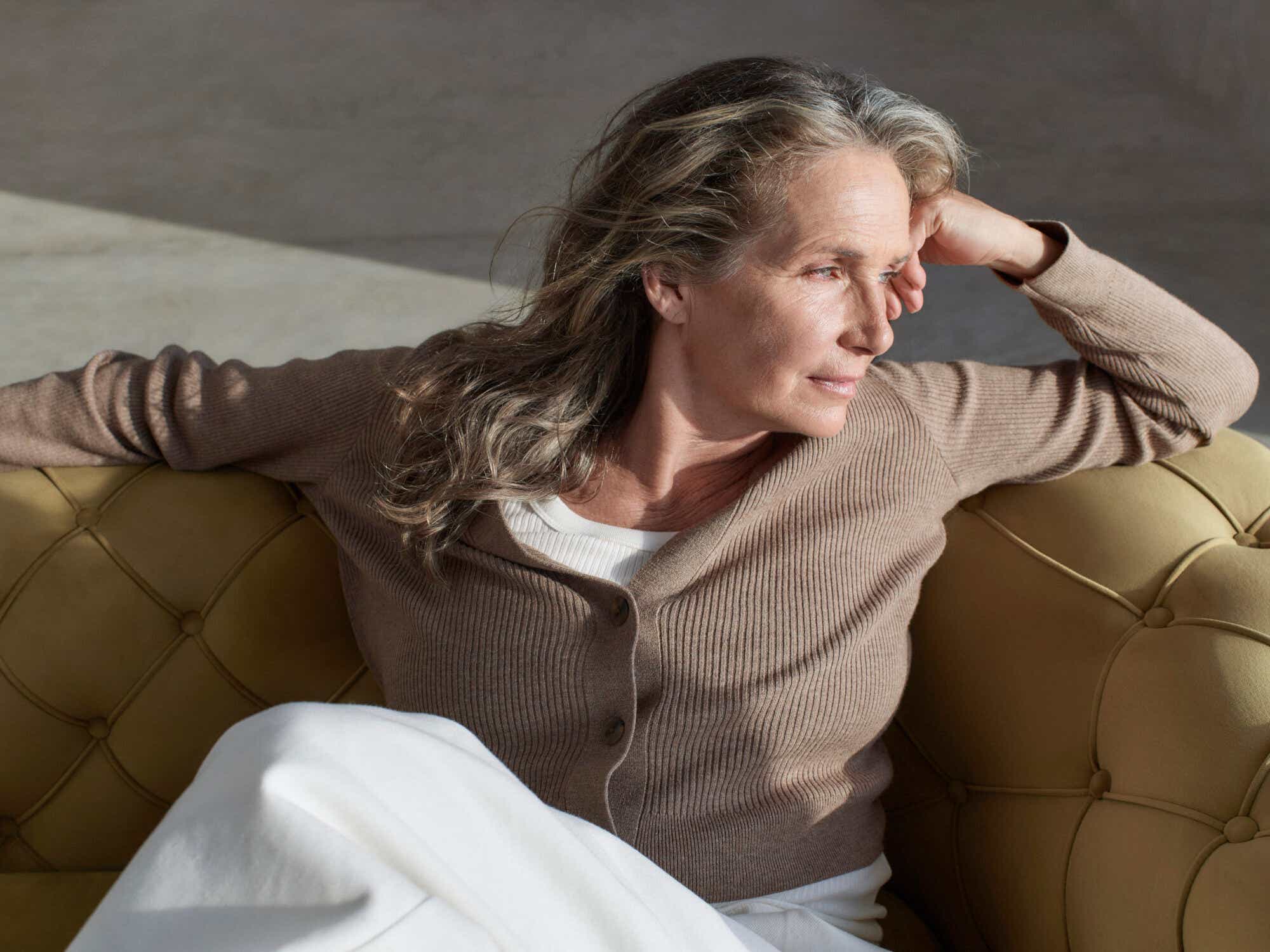
But the main reason menopause can cause changes within our hair is hormonal. Estrogen influences hair in many ways, including its density, growth rate, and the number of hairs in the “growing” stage at any given time. “Thus, very low estrogen levels after menopause can lead to decreased hair thickness and more hair shedding,” Dr. Diorio tells us. “Further, those low estrogen levels lead to lower oil production, which results in hair that’s dry, dull, and more breakage-prone.”
Does menopause stress have an effect on hair health?
Menopause and stress often feed into and amplify each other, which can lead to a cascade of physical and emotional consequences that can cause further stress. “The hormonal imbalances that come with menopause can affect our levels of cortisol, the stress hormone,” Dr. Diorio says. “Increased cortisol levels can push our hair follicles into a resting phase in which they stop growing and eventually just fall out.”
Further, stress can cause the body to produce more androgens — male hormones like DHT. “These hormones can cause the hair follicles to shrink and produce thinner, shorter hairs, which leads to a reduction in overall hair density,” Dr. Diorio tells us.
Can dyeing aging hair cause hair thinning?
It might be time to embrace those grays. According to Dr. Diorio, any kind of processing (dyeing, using hot tools, over-styling, etc.) can impact your hair quality and make it more prone to breakage and increased shedding. But if gray isn’t your color, there are ways to protect your hair while continuing to dye it.
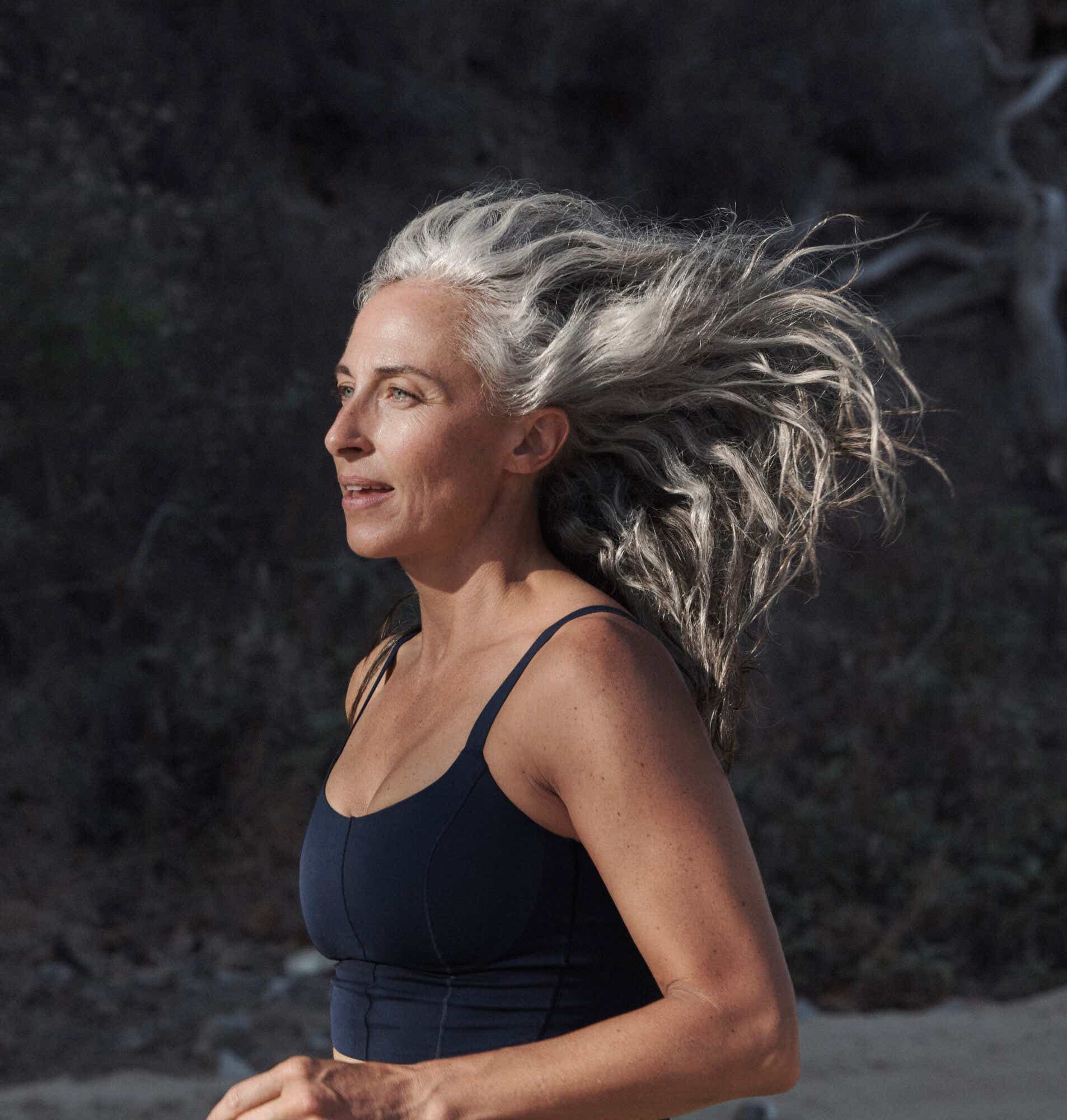
“Using a hair growth nutraceutical in your daily routine supports the internal foundation of compromised hair, which improves hair quality from within,” Dr. Diorio says. “Additionally, supporting scalp care products like our physician-formulated Root Purifier Shampoo and Strand Defender Conditioner directly replenish nutrients in the scalp and reduce product build-up, which creates a healthy growing environment.”
How does Nutrafol’s Women’s Balance address menopause-related hair thinning?
According to Dr. Diorio, Nutrafol’s formula incorporates science-backed ingredients that target key causes of thinning specific to women nearing or in menopause. “Our 21 ingredients work in harmony with the body to balance stress and hormones, fight environmental aggressors, support metabolism, and help support the interconnected systems that affect hair health,” Dr. Diorio tells us.
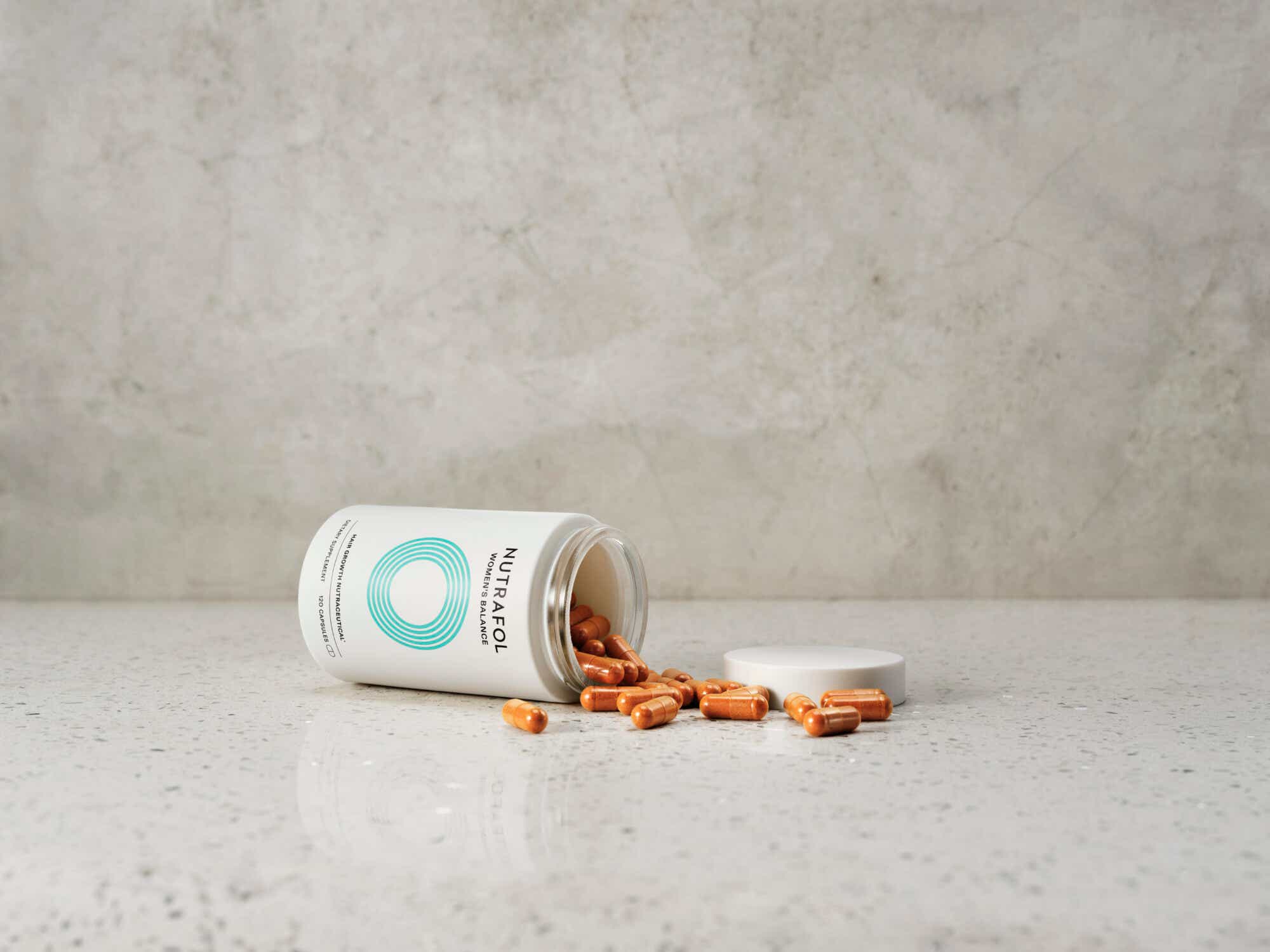
Some of those standout ingredients include maca, an organic root that eases the hormonal transition that triggers hair thinning during menopause, as well as astaxanthin, which is an antioxidant shown to lower signs of aging by energizing the cells needed to grow hair.
What are some other ways women can protect their hair during menopause?
Dr. Diorio recommends finding balance with your hair care routine. “Over-washing can strip the scalp and make it vulnerable to dryness and irritation while under-washing and product build-up can clog scalp pores and lead to a poor environment for natural hair growth,” she says.
Use products that are sulfate-free to remove excess oil without stripping the scalp. “Our Scalp Mask is a great option as it’s made with natural ingredients that dissolve pore-clogging oil and product build-up with a gentle exfoliation of the scalp,” Dr. Diorio tells us.
Most importantly, however, you should approach hair health through a holistic lens by supporting your whole-body health as it changes. “We want to start by supporting our internal systems, then work our way out toward supporting the scalp and our hair strands,” Dr. Diorio says. What does that look like? Eating plenty of nourishing foods, getting enough sleep and hydration, incorporating daily movement, and managing our stress levels are all ways to support ourselves internally.
Products for Menopausal Hair Thinning
Nutrafol Women’s Balance
Nutrafol
Formulated specifically for women ages 45 and up, Women's Balance uses science-backed ingredients to target six key root causes of hair thinning triggered by menopause.
Build-Up Blocker Scalp Mask
Nutrafol
Nutrafol's exfoliating scalp mask gently removes impurities, relieves dry skin, and balances oil production on the scalp, creating a healthy growing environment for your hair.
Root Purifier Shampoo
Nutrafol
This deeply cleansing, hydrating shampoo visibly improves hair volume, strength, and texture in two weeks. It's gentle enough to remove excess oil without stripping your scalp
Strand Defender Conditioner
Nutrafol
Lightweight but moisturizing, Nutrafol's conditioner helps strengthen hair and protect it against damage.







